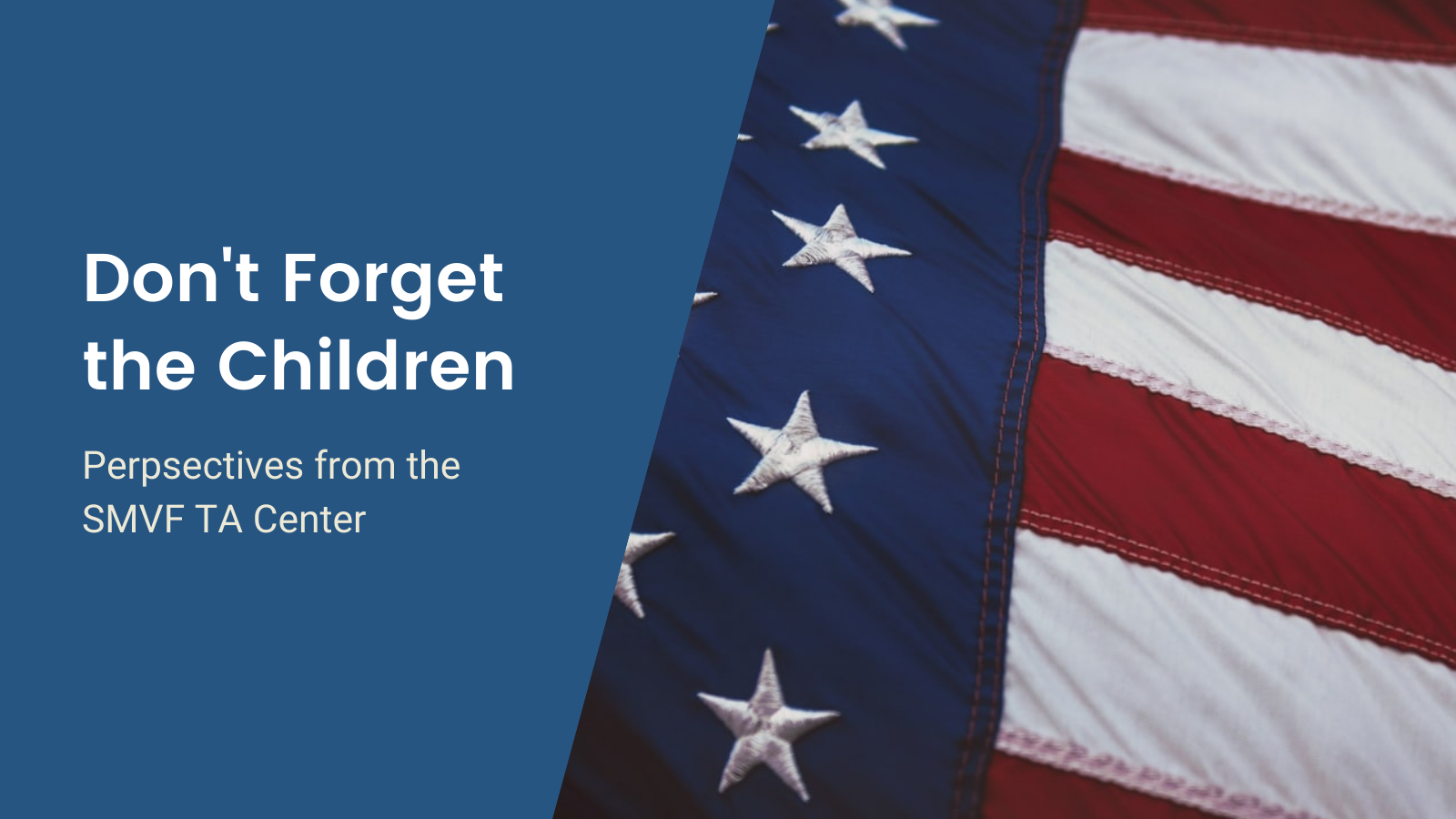By Barbara Lattimore
Children and adolescents play a major role in SMV (Service Member and Veterans) families. Many children in these families must be more resilient than their civilian counterparts. For all practical purposes, when one member of a SMV household serves, all family members serve, including children.
With the understanding that the whole family serves, many children in SMV families have faced the loss of a parent or loved one. They may have also experienced frequent absences of one or both parents. In addition to the factors just mentioned, many of these children come face to face with the brutal realities of war at an earlier age than many of us would ever imagine. We can only hope that with the proper intervention, these affected children can frame the horrific concept of war in a way that provides a healthy framework for their growth and development.
To add to their stressors, children of SMV may face frequent relocations, which requires kids to make new friends, adjust to new environments, and make connections all over again. Additionally, children can also react to SMV parents’ stressors of relocation, including financial problems, loss of relationships, and disconnection from previous social networks.
Other stressors children of SMV can face include post-deployment adjustment and subsequent problems with reintegration, family strain caused by back-to-back recurring deployments, or parental problems at work. We often place a great deal of time and emphasis on addressing adult issues. However, it is very important to also investigate the lives of the children in those families. It is these same children that grow up to become leaders, politicians, and community members. It is often assumed that children are “too young” to have feelings around issues or to voice their opinion(s) about world affairs. After all, children do not vote or pay taxes. However, a great deal of important development takes place in children and adolescents. This development provides a framework for shaping their future attitudes, values, and beliefs.
In practice, the availability of age-appropriate interventions, resources, and opportunities to enhance healthy cognitive development is crucial as children and adolescents progress throughout developmental stages. Further, it is critical to include children and adolescents of SMV in our work with this population. In my work with children and adolescents, I incorporate Play Therapy with small children by encouraging them to re-enact their natural environment through sand trays and other play-therapy modalities. Such concepts provide a great deal of insight into the child’s view of their world. For adolescents, feelings of abandonment and loss of trust build when parents must miss birthdays, graduations, sporting events, and other major developmental milestones in their life due to military commitments. For this group, simply providing an outlet to communicate basic feelings such as trust, anger, sadness, and guilt helps to understand the complexities of military families. Adult mentors and role models are also key to healthy development for this population.
Children in SMV families are very resilient. Additionally, their upbringing and environment teaches concepts like service, valor, integrity, honor, courage, heroism, flexibility, and selfless acts very early in life. Most SMV children quickly learn how to adapt to new environments and make new friends. They may learn how to be responsible earlier than most non-SMV children, as many times they step in to provide extra help with household duties when one or more parent(s) is not available. Children of SMV usually travel to many different parts of the world on accompanied tours with their family. Many children of SMV go on to become adult service members who continue the family legacy.
As our nation continues toward a post-deployment era, our work is just beginning with SMV children and families. We will see more manifestation of issues in families that have not been addressed, particularly in the areas of mental health. Our SMV families need us now more than ever. Let us not forget the sometimes-overlooked heroes—the children and adolescents of our adult warriors in the SMV population. Schools, faith-based agencies, and other community organizations can develop evidence-based, age-appropriate programs and services specifically targeted towards children and adolescents of this population. Providing outlets and opportunities to communicate “in their voice” about their world will go a long way in ensuring our next generation of leaders and community members are equipped and “battle-ready” for society. Investing the time, resources, and energy now will yield very positive results for the future.
Suggested Viewing
15 Things Military and Veteran Kids Want You to Know | Psych Armor


